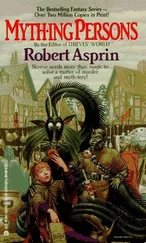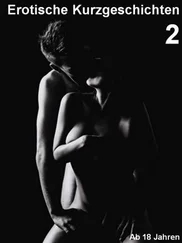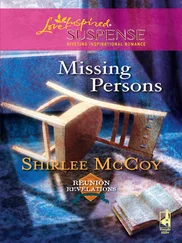The placement of the new stone bothered him more every year. At the time of the redesign of the stone, Pavel had worried a small bit about the stone’s location. He wasn’t too familiar with the graveyard; Mother had died visiting relatives in Krakow, some hours away from home, and had had to be buried near her death place, so as not to lose time. It would have been risky, taking the body back to Katowice. They might have gone over the limit of one day’s lapse between death and funeral. But if his father had tried hard enough, couldn’t it have been done? Perhaps not with a newborn child to handle. Still, it was a source of resentment, terrible resentment, all the years that Pavel grew up. Why did his mother’s grave have to be so difficult to visit?
“Pavel,” said Fela. “Do you want the milk?”
“No,” said Pavel.
“Then pass it to me.” He moved his arm toward the carton. Larry took the milk from him, shook it, poured for himself before passing to Fela. Ladies first, ladies first, Pavel wanted to say, but he stopped himself. It would upset Fela. Well, Larry tried. And he was smart, after all. Maybe not the most dutiful son in the world, maybe not the most respectful, but he was smart, and he could observe and remember what his father and Mayer had been doing. He wouldn’t know what was right or not, not for graveyards, but his presence, strangely, had given the task a certain legitimacy. Pavel had been glad that Larry had gone with them. It was Larry’s vacation, and instead of Florida or California or someplace that young people liked to go, he had gone with his father and uncle to Poland, in November. It was good when Larry tried.
“You were a witness,” Pavel said to his son. “We tried very hard to make sure it was all set in order, her new stone where the old stone would have been. I think we did it right, didn’t we?”
“I’m sure you did,” said Larry. “Positive.”
Pavel looked at the calm smile on his son’s face. His son, a grown man, who took care of others, who saw pain and sickness every day, but who still remained naive, innocent. A wind rose in Pavel’s chest. “Then why do I feel this worry?” he suddenly cried, hand slamming the table. Larry’s cup rattled against the plate.
“Pavel,” said Fela, face softened. “Pavel.”
Helen’s hand had flown over his, had stopped it from jumping up again. “Dad,” she said. “Dad, it’s fine. It’s a normal thing to worry about. But it’s in the right place. You saw, Mayer saw, the graveyard men saw, Larry saw. How could all of you be wrong?”
“The dream was terrible,” said Pavel, shaking his head, quieter now. Helen had spooned a serving of herring onto his plate; she never remembered he did not like the cream. But he did not want to waste. He picked up a piece of fish with his fork, brought it to his mouth, then put it down again without eating it. His throat was beginning to hurt from all the speaking, and when he got nervous, excited, it hurt worse. But the words were fighting him to get out. “The stone, the new stone,” he rasped. “It was in the wrong place. It was standing in the plot of a complete stranger, a stranger who wanted his own gravestone. He wanted it the same way. He wanted it restored and returned.”
Pavel’s children listened to him, Larry’s face blank, Helen’s attentive. Pavel turned from one to the other, then looked straight at Fela. “He was screaming, in pain! With no air to breathe, because our new stone was blocking him. And my mother, all I could hear was her voice, lost somewhere else in the cemetery, looking for us.”
Pavel took in a breath, pushed the breath out.
“Really?” said Fela, swallowing a corner of her bread. “The way I heard you in the middle of the night, your mother was calling out to you, saying that you too much focus on her gravestone in the first place.” She squinted her eyes. “There’s only so much one person can do, Pavel. If she’s upset, probably it’s because she’s stuck still in Poland. Most Jews prefer hell.”
PAVEL RINSED HIS MOUTH with mouthwash, patted his lips with a small white towel. It was after nine o’clock, and no one was home. The children had taken their mother to a movie; Pavel hadn’t wanted to go. No attention for it, no patience. But now he wondered what kept them so late. They had left at seven. How long was a movie? They could stop afterward for coffee, but why, with him waiting alone?
It was hot, and Pavel hated the air-conditioning that Fela had insisted on using when they still shared the bed, before she took over the old room of their son. If he turned on the air, he would be cold; but now he was warm, sweating. He went to the chest of drawers under his night table and opened the bottom drawer. He had short-sleeved pajamas and long-sleeved pajamas, everything in different shades of blue, except for the newer plaid ones, in red and black, that Fela had bought him two years ago from the Gap. They were the only American kind he liked. He looked at the short sleeves of his pale cotton pajamas, the shorts that folded under them. He took them out, laid them flat on the bed, fingered the white piping that slanted into a V at the collar.
He had not worn summer pajamas since the bypass operation. Ashamed of the new scars on his leg. Stupid. Who looked at an old man’s legs? And anyway, he had worn shorts in the summertime, even outside, with the injuries on his right leg, the injuries from the accident, visible for all the world to see, when he was young. But these, the surgery scars, where they had cut open and taken out the veins to attach to his heart, these marked up the good leg. And they came not from accidents, not from outside force, but from sickness and age. All his life he had been a strong man, not big but strong, tough. Nothing could break him. Everyone said so, all his friends. And now, this sickness, this smoke-covered heart, had broken him. He was ashamed, and he could feel his friends’ shame for him.
Fela thought this crazy. They’re sick too! she would say to him, impatient. We go to a funeral every month! I’m not so healthy either! Do you see me blaming myself? We’re old, Pavel, we’re old. Then she would laugh at him, touch his arm.
He would shake her off. In good moments he could laugh at his vanity, but he didn’t think it so funny when she said it aloud, only when he thought it himself in his head. He was old. He never thought he would become so old. When he was twenty-five, starving, the idea that he would live to thirty seemed stupid and sentimental, a dark joke. But once he was liberated, he became invincible. Pavel had lived past the deaths of most of his best friends, and he had lived past the deaths of all his worst enemies. He had gone to the funeral of his brother-in-law, the man who had betrayed him for money, and he had cared for the cousin whose dead husband had helped him come finally to America. He had suffered through his son’s divorce, and he had woken up one night three years before to the telephone call with the news that his daughter had given birth to a second son. He had lived a long time.
He never thought he would become so old, not so much in numbers as in energy. It wasn’t just broken limbs and empty flesh that slowed Pavel now. It was his own soul betraying him, loosening the bones from the inside, shrinking him so he almost was smaller than his daughter. His children shouted at him sometimes; they thought he didn’t hear well. When he looked at bills he had to cover the right eye, because it clouded over and distracted him. There was a thick white surgery line that drove down his chest, splitting it in two. His cardiologist gave him pills not just for his hardened arteries and erratic blood pressure but also for his feelings, to make him less depressed, to help him get up in the morning. Pills for his mind, another bottle in the collection of bottles he brought to each meal.
Читать дальше











